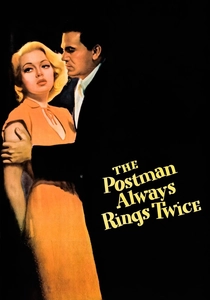If you loved the dark humor and satirical edge of The Seduction of Mimi (1972), this list is for you. Dive into 10 similarly bold and provocative films and shows that blend comedy, drama, and social commentary. Whether you're a fan of Lina Wertmüller's style or just crave more audacious storytelling, these picks will keep you entertained and thinking.

The Postman Always Rings Twice (1946)
Description: A noir classic exploring themes of passion, crime, and moral ambiguity. While darker in tone, its focus on flawed characters driven by desire resonates with the reference film's themes.
Fact: The film was adapted from James M. Cain's novel and is considered one of the defining works of film noir. It was controversial for its time due to its explicit themes.
 Watch Now
Watch Now 
Divorce Italian Style (1961)
Description: A biting satire on marriage, morality, and Sicilian society, using dark humor to expose hypocrisy. Its comedic yet critical lens on societal norms aligns closely with the reference film.
Fact: The film won the Academy Award for Best Original Screenplay. It popularized the term 'divorce Italian style' as a euphemism for extreme solutions to marital problems.
 Watch Now
Watch Now 
Yesterday, Today and Tomorrow (1963)
Description: An anthology film exploring love, morality, and societal norms through three distinct stories. Its blend of humor, satire, and human drama aligns with the reference film's style.
Fact: The film won the Academy Award for Best Foreign Language Film. It features Sophia Loren's famous striptease scene, which became iconic.
 Watch Now
Watch Now 
Marriage Italian Style (1964)
Description: A comedic yet poignant look at love, infidelity, and societal expectations in Italy. Its mix of humor and drama, along with its critique of traditional values, mirrors the reference film's approach.
Fact: The film was nominated for an Academy Award for Best Foreign Language Film. It stars Sophia Loren and Marcello Mastroianni, one of the most iconic duos in Italian cinema.
 Watch Now
Watch Now 
Investigation of a Citizen Above Suspicion (1970)
Description: A satirical thriller examining corruption and power in society. Its dark humor and critique of authority figures resonate with the reference film's themes.
Fact: The film won the Academy Award for Best Foreign Language Film. It is known for its unsettling score by Ennio Morricone.
 Watch Now
Watch Now 
Love and Anarchy (1973)
Description: A darkly comedic exploration of political and social rebellion, blending satire with human drama, much like the reference film. It critiques societal norms through a mix of humor and tragedy.
Fact: The film won the Best Actress award at the Cannes Film Festival for its lead performance. It was directed by Lina Wertmüller, one of the few female directors to gain international acclaim in the 1970s.
 Watch Now
Watch Now 
Swept Away (1974)
Description: A sharp satire on class and gender dynamics, using a shipwreck scenario to explore power reversals and human nature. The film's blend of humor and social critique mirrors the reference's tone.
Fact: The movie was later remade in 2002 by Guy Ritchie, starring Madonna. The original is considered a cult classic for its bold storytelling.
 Watch Now
Watch Now 
Seven Beauties (1975)
Description: A darkly comedic and tragic tale of survival during WWII, blending satire with brutal realism. Its unflinching look at human nature and societal collapse aligns with the reference film's tone.
Fact: The film was nominated for four Academy Awards, including Best Director and Best Foreign Language Film. It is known for its controversial and provocative scenes.
 Watch Now
Watch Now 
Bitter Rice (1949)
Description: A gritty drama set in the rice fields of Italy, blending social realism with melodrama. Its focus on working-class struggles and human flaws echoes the reference film's societal critiques.
Fact: The film was a breakthrough for Italian neorealism and featured non-professional actors. It gained international attention for its raw portrayal of post-war Italy.
 Watch Now
Watch Now 
The Garden of the Finzi-Continis (1970)
Description: A poignant drama about a wealthy Jewish family in Fascist Italy, blending personal and political themes. Its exploration of societal upheaval and human resilience echoes the reference film's depth.
Fact: The film won the Academy Award for Best Foreign Language Film. It is based on a novel by Giorgio Bassani, which was semi-autobiographical.
 Watch Now
Watch Now 








